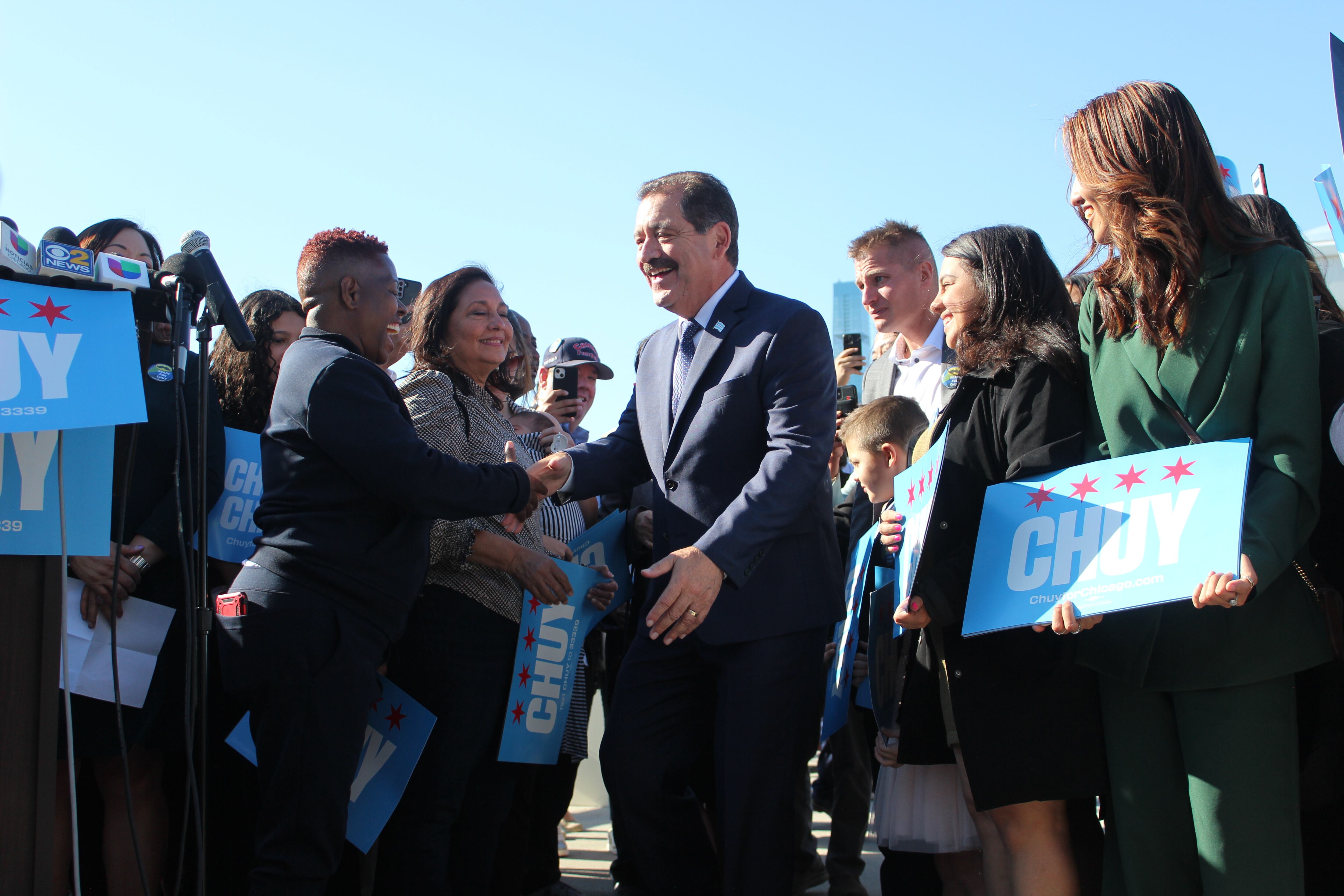U.S. Rep. Jesus “Chuy” Garcia is officially joining the crowded race to unseat Chicago Mayor Lori Lightfoot.
Garcia, a Democrat who represents Illinois’ 4th district, is a well-known name in Chicago politics and won reelection to a third term in Congress on Tuesday.
Before heading to Congress in 2019, he forced former Mayor Rahm Emanuel into a runoff election in 2015 with the backing of the Chicago Teachers Union.
This time Garcia will not have the support of the Chicago Teachers Union, which has already endorsed Cook County Commissioner and teachers union organizer Brandon Johnson.
In a video posted on YouTube, Garcia formally announced his second bid for mayor after months of speculation, saying he wanted to lead the city during a critical juncture and unite all Chicagoans.
“Now is the time to revitalize our communities, strengthen our schools, and bring safety back to our streets,” Garcia said in the video.
Garcia joins nearly a dozen candidates challenging Lightfoot, who is seeking a second term. He previously endorsed Lightfoot in 2019. Three aldermen and former Chicago Public Schools CEO Paul Vallas are also among the candidates.
If he succeeds in the mayoral race, a special election would be held to elect a replacement for his congressional seat.
Flanked by supporters at Offshore Rooftop at Navy Pier on Thursday, Garcia said it was time for the city to “double down” on education. “Your ZIP code, race, and socioeconomic status should not determine your future,” Garcia said.
Garcia also promised to support teachers, saying “It’s time that we treat them with dignity and respect—and the value they have earned and deserve.”
In Congress, Garcia serves on the House Financial Services Committee, House Committee of Transportation and Infrastructure, and House Committee of Natural Resources.
Garcia and his family immigrated in 1965 from Mexico to Chicago’s Little Village neighborhood on the Southwest Side. As a student at the University of Illinois at Chicago, Garcia advocated for workers rights, according to his congressional website.
He was one of the first two Latinos elected to City Council in 1986 during a special election following a court-ordered redistricting to reflect the city’s increasing Latino population. Garcia was an ally of then-Mayor Harold Washington and his election came amid the so-called “Council Wars” — when 29 white aldermen frequently stymied Washington, the city’s first Black mayor.
Garcia served as 22nd Ward Alderman for seven years.
As a community organizer in Little Village, he helped lead a 19-day hunger strike in 2001 to get a new high school built in the community. Vallas was CPS CEO at the time. The campus — Little Village Lawndale High School — opened in 2005 and has four schools: Infinity STEM, World Language, Social Justice, and Multicultural Arts.
Garcia has also served as a Cook County commissioner and an Illinois state senator.
As of mid-October, Garcia had $180,000 in his congressional campaign fund. His mayoral campaign fund is currently empty.
Mauricio Peña is a reporter for Chalkbeat Chicago, covering K-12 schools. Contact Mauricio at mpena@chalkbeat.org.






